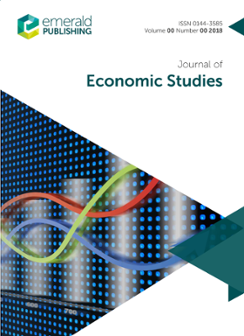
The most recent
Purpose – The purpose of this paper is to study the implications of borrowing constraints characterizing the informal sector for macroeconomic volatility. Design/methodology/approach – To this end, the author develops a simple dynamic stochastic general equilibrium model wherein registered activity not only is the basis to determine tax liabilities, but also serves as collateral for securing debts. Such a framework allows for computational experiments to analyze the effect of informality on aggregate fluctuations. Findings – The experiments show that the credit-constrained informal sector does exert a significant influence on the cyclical volatility of consumption and investment. Originality/value – There are not many studies addressing the implications of informal economic activities for macroeconomic fluctuations. This paper contributes to the literature by developing a theoretical model showing that credit constraints characterizing these activities might play a non-negligible role in explaining the cyclical volatility of some important aggregates

